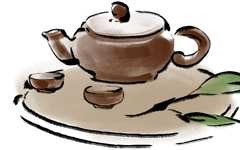You’ve probably heard the saying, “Good medicine tastes bitter.” For a long time, there has been a consensus that traditional Chinese medicine (TCM) is bitter, leading to the stereotype that “the more bitter the medicine, the better the effect.” However, recently, with the ongoing hot weather, various TCM “tea drinks” have become popular health products, and many TCM hospitals have launched unique tea drink packages. So, what exactly are these “tea drinks,” and how are they related to “medicine”? Today, let’s discuss this topic.
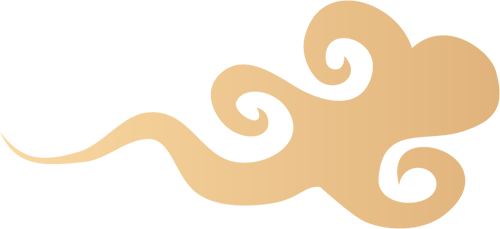
In the treasure trove of TCM, liquid medicines can be divided into several types: decoctions (汤剂), infusions (煎剂), juices (汁), and drinks (饮剂). Among them, decoctions are made by boiling herbs in water to extract a thick liquid, which is taken in specific doses, usually two to three times a day. Decoctions are the most widely used, have strong effects, and can reach all parts of the body, embodying the idea of cleansing.
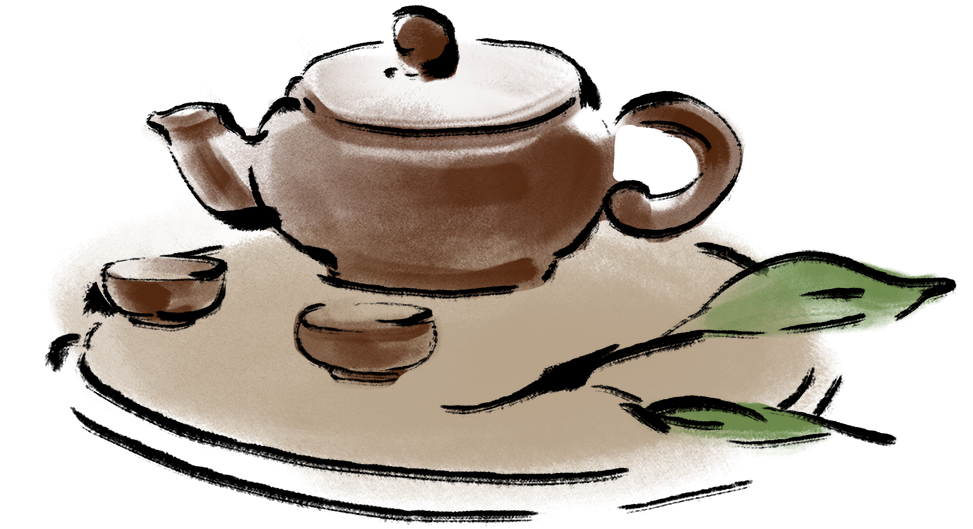
Similar to decoctions are infusions and drinks. Infusions are made by re-boiling the strained decoction to create a concentrated liquid, suitable for general nourishing and viscous substances, requiring prolonged boiling to extract the rich medicinal properties. Common juices include pear juice, water chestnut juice, raw rehmannia juice, and reed root juice, primarily used to replenish fluids during high fever and unconsciousness when food intake is not possible.
The difference between drinks and decoctions lies in the preparation and consumption methods. Drinks are made by steeping herbs in hot water or briefly boiling them, then consumed repeatedly, similar to tea, which is why they are often mistakenly referred to as tea drinks.
So, what about tea drinks? Tea drinks are classified as beverages, as they use a small amount of medicinal materials, and the materials used are fine and have weak effects, mostly being food-medicinal herbs, thus lacking significant special effects. They can replace bitter tea leaves as a drink.Tea drinks are different from the “drinks” in TCM, which have therapeutic effects, use high-quality medicinal materials, and are in larger doses with clear efficacy.
There are many “drinks” in TCM formulas, such as the well-known “Sheng Mai Yin” (生脉饮), as well as the “Wu Wei Xiao Du Yin” (五味消毒饮) for treating soft tissue infections, “Pu Ji Xiao Du Yin” (普济消毒饮) for throat and facial swelling, “Tian Ma Gou Teng Yin” (天麻钩藤饮) for dizziness due to liver yang rising, “Xiang Ru Yin” (香薷饮) for summer heat and colds, “Sang Ju Yin” (桑菊饮) for autumn dryness and cough, and “Zheng Chai Hu Yin” (正柴胡饮) for mild wind-cold symptoms. They primarily treat conditions above the middle jiao (中焦) and indicate that TCM drinks are not simply tea drinks.
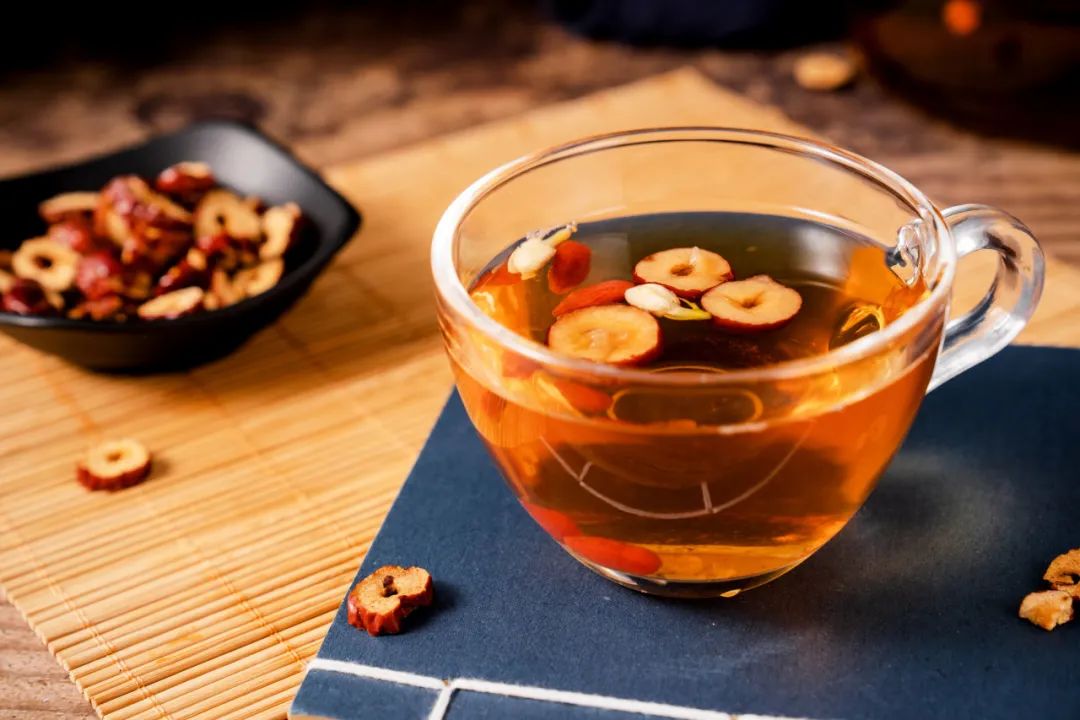
Why use “drinks”? Compared to decoctions, drinks are taken more frequently, targeting the disease more specifically, which aids in the absorption and effectiveness of the medicine. For some patients, this is a more suitable way to take medicine than decoctions.
At Shuguang Hospital’s Department of Traditional Medicine, we have specially formulated “drinks” for different populations and seasonal changes, such as the “Qing Shu Yi Qi Suan Mei Yin” (清暑益气酸梅饮) suitable for the period between the end of the plum rain and the White Dew solar term, when summer heat depletes qi and injures fluids, and the spleen and stomach are weak. The “Bian Mi Yin” (便秘饮) is suitable for those with constipation due to prolonged sitting and lack of bowel movement, leading to abdominal bloating and difficulty in defecation. The “Qing Zao Run Fei Yin” (清燥润肺饮) is suitable for the dry climate in autumn after school starts, winter heating, and for teachers and office workers who speak a lot, leading to dryness in the mouth, nose, and throat. The “Jian Fei Yin” (减肥饮) is designed for those managing their body shape.
Patients in need can follow the WeChat service account of Shuguang Hospital to find the “Department of Traditional Medicine General Outpatient” through the “Internet Outpatient” service. Doctors will adjust the “drinks” according to the patient’s needs and actual conditions. The “drinks” can be delivered to your home, with the medicinal materials divided according to instructions, to be steeped in hot water or boiled in a health pot, and taken warm in multiple doses throughout the day.
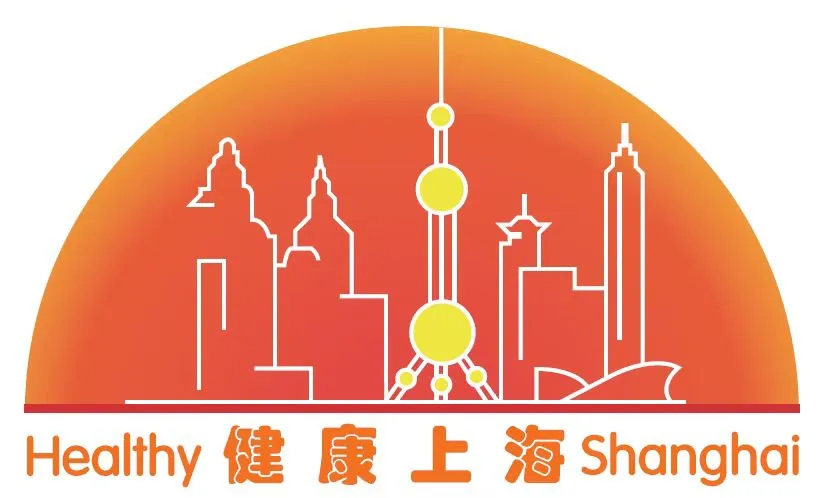
Shanghai Health Science Popularization Special Project, Project Number:JKKPYL-2024-B04
Expert Introduction
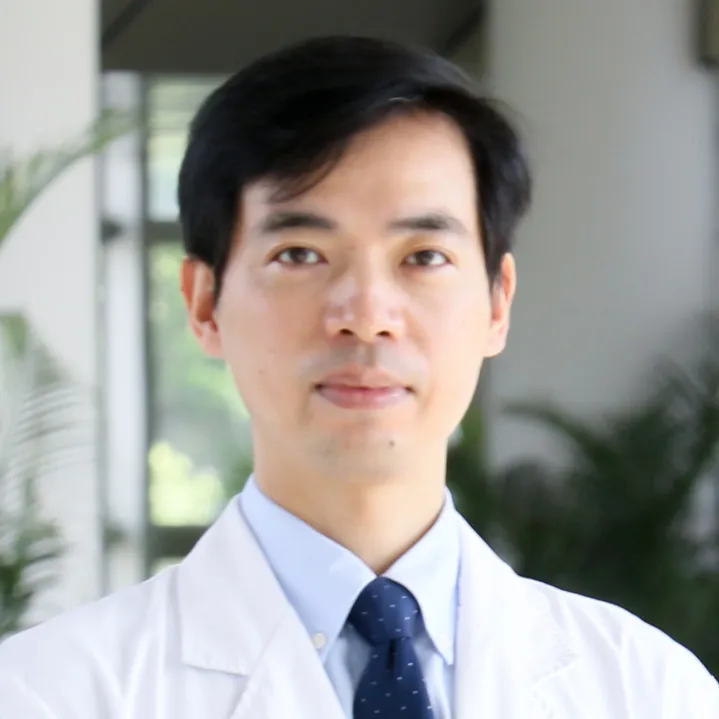
Wu Huan
Introduction:
Deputy Director and Chief Physician of the Department of Traditional Medicine at Shuguang Hospital affiliated with Shanghai University of Traditional Chinese Medicine. Specializes in comprehensive treatment of lung diseases, gastrointestinal diseases, metabolic diseases, cervical and lumbar spondylosis, office syndrome, sub-health conditions, menopausal syndrome, and post-operative rehabilitation using TCM and acupuncture.
Expert Outpatient Hours:
All day Monday, Wednesday, and Thursday (East Hospital), Tuesday morning (West Hospital)
Special Outpatient Hours:
Saturday afternoon (East Hospital), Saturday morning (West Hospital)
Department Introduction
The Department of Traditional Medicine at Shuguang Hospital affiliated with Shanghai University of Traditional Chinese Medicine is one of the first clinical departments in the country to establish comprehensive TCM treatment. The department specializes in the treatment of internal medicine diseases, chronic diseases, and difficult diseases using TCM, and is a key clinical teaching base for TCM and training base for advanced clinical talents in traditional Chinese medicine.
The department innovatively breaks the current system of Western medicine specialization, integrating TCM internal medicine, acupuncture, tuina, rehabilitation, and other disciplines, using traditional TCM comprehensive treatment methods (herbs, acupuncture, moxibustion, tuina, fumigation, ear acupuncture, plastering, bloodletting, and thread embedding) to treat common diseases, frequently occurring diseases, difficult diseases, and sub-health conditions, particularly excelling in the comprehensive treatment of chronic cough and asthma, gastrointestinal diseases such as abdominal pain and diarrhea, allergic diseases such as allergic rhinitis, chronic musculoskeletal diseases such as neck and lumbar pain, and chronic deficiency diseases.
Outpatient Hours:
East Hospital: All day Monday to Saturday, Sunday morning (528 Zhangheng Road, Pudong New District) 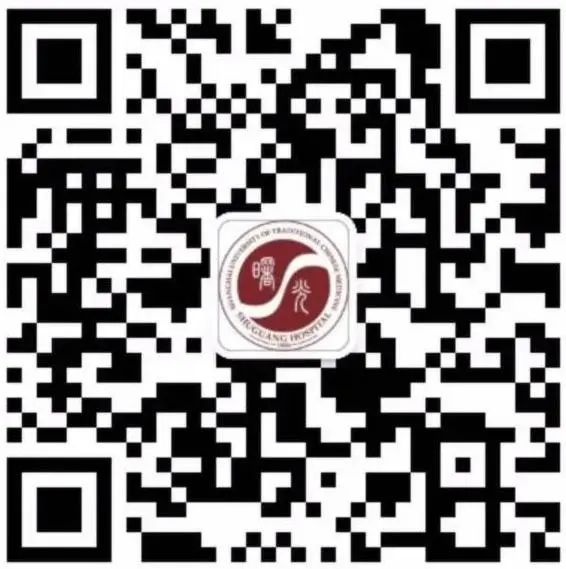
Scan the QR code above to enter the WeChat service account of Shuguang Hospital,
Click “Shuguang Portal” to make an appointment for consultation.

